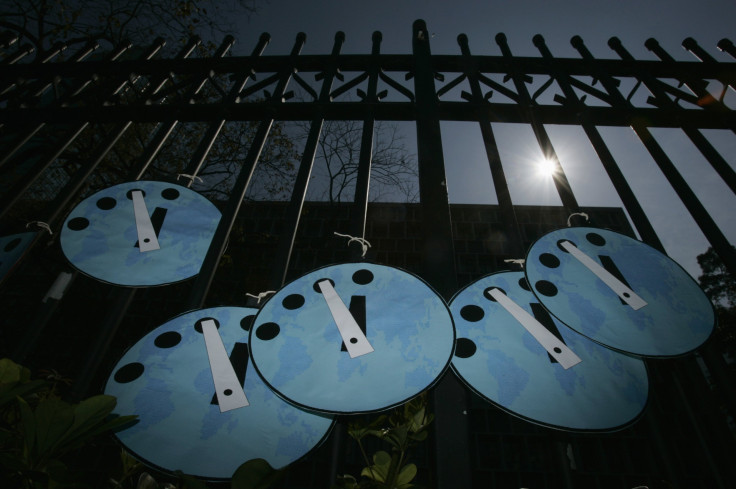Doomsday Clock Update: World Remains Close To Nuclear Destruction Amid Russia, US Nuclear Tensions

A respected group of international scientists announced Tuesday that the symbolic Doomsday Clock will remain at three minutes to midnight, signaling that the world is still close to nuclear destruction. The clock kept by the Bulletin of Atomic Scientists has sat at three to midnight since January 2015 and had been adjusted 22 times in 69 years, according to the Chicago-based group.
The closest the clock has come to hitting 12 was in 1953, when a series of nuclear tests by the U.S. and Soviet Union saw the clock move to two minutes to midnight. And the same two countries are largely responsible for Tuesday’s announcement at the National Press Club in Washington.
“Tensions between the United States and Russia that remain at levels reminiscent of the Cold War, the danger posed by climate change, and nuclear proliferation concerns, including the recent North Korean nuclear test, are the main factors influencing the decision about any adjustment that may be made to the Doomsday Clock,” the Bulletin’s press release said.
Specifically, the recent movement of short- to medium-range nuclear weapons by Russia and the U.S. threat to place nukes back in Europe are the largest contributors to the clock remaining at three minutes to midnight. In addition, the claimed testing of a hydrogen weapon in North Korea earlier this month offset the successes of the recent Iran nuclear talks that saw Tehran promise to give up any ambitions to operate nuclear weapons.
Russia and the U.S. hold 14,700 of the 15,800 known nuclear warheads in current existence, according to Geneva-based International Campaign to Abolish Nuclear Weapons.
The Bulletin of Atomic Scientists includes physicists and environmental scientists from across the globe, who decide when to adjust the clock in consultation with the group's board, which includes 17 Nobel laureates.
© Copyright IBTimes 2025. All rights reserved.






















